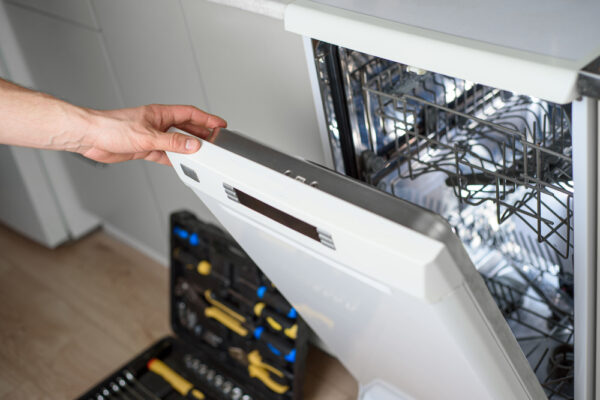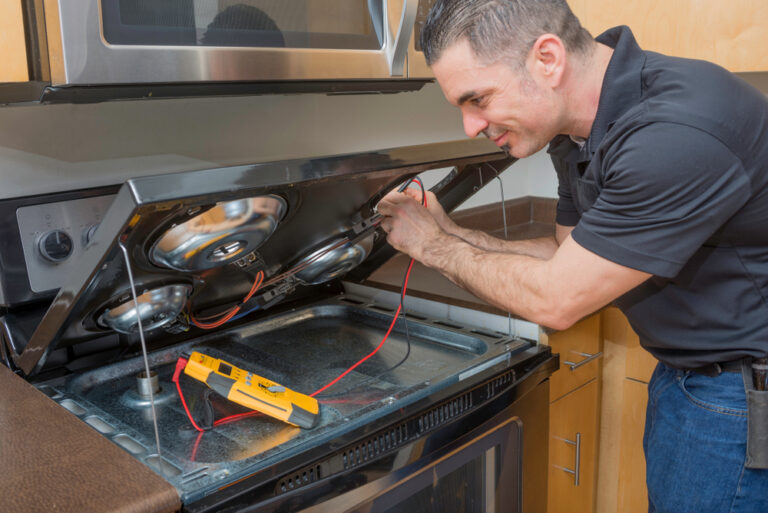
Dishwasher Dilemmas: Is It Worth Fixing Yours?
When faced with a malfunctioning dishwasher, homeowners often find themselves wrestling with a barrage of questions. Is it time to call in a dishwasher technician? Should I invest in repairs, or is it time to say goodbye and purchase a new unit? In this comprehensive guide, we’ll delve into the various aspects of dishwasher repair and help you navigate through the labyrinth of decisions that accompany appliance malfunctions.
Dishwasher Dilemmas: Is It Worth Fixing Yours?
Understanding whether to fix or replace your dishwasher can be daunting. You're likely contemplating the financial implications, the age of the machine, and its overall efficiency. The truth is, while dishwashers are designed to have a lifespan of about 10 to 15 years, many factors influence their longevity and reliability.
Understanding Your Dishwasher’s Lifespan
Before making any decisions related to repairs or replacement, it's essential to understand what impacts your dishwasher's lifespan. Here are some key considerations:
So how long do dishwashers usually last? On average, you can expect a well-maintained dishwasher to last between 10-15 years. However, if yours is nearing that age and starting to show signs of wear, such as leaks or inconsistent cleaning performance, it might be time for an assessment.
Common Dishwasher Problems
Let’s take a closer look at some common issues that prompt calls for dishwasher repairs. These problems can vary widely from minor fixes to major breakdowns.
1. Not Cleaning Effectively
If your dishes come out dirty despite running through a full cycle, this could indicate clogged spray arms or filters.

2. Leaking Water
Water pooling under your dishwasher could stem from cracked hoses or faulty door seals.
3. Strange Noises
Unusual sounds during operation might suggest loose components or worn-out bearings.
4. Foul Odors
Lingering smells could mean food debris is trapped somewhere within the unit.
5. Failure to Start
If your dishwasher refuses to turn on altogether, this could stem from electrical issues or a malfunctioning control panel.
When to Call a Dishwasher Technician?
So when should you consider calling in a dishwasher technician? If you're experiencing any of the above issues and they persist after basic troubleshooting—like checking power sources or cleaning filters—it’s advisable to consult with an expert.
Assessing Repair Costs vs Replacement Costs
When considering whether to repair or replace your unit, understanding potential costs is crucial. Below is an overview:
| Issue | Average Repair Cost | Replacement Cost | |-------|---------------------|------------------| | Clogged Spray Arm | $150 - $200 | $600 - $1,500 | | Door Seal Replacement | $100 - $150 | $600 - $1,500 | | Control Panel Issues | $200 - $300 | $600 - $1,500 | | Motor Replacement | $250 - $400 | $600 - $1,500 |
These figures are estimates and can vary based on location and service provider.
DIY vs Professional Repairs
This brings us to an important question: Is DIY repair worth trying before calling in the dishwasher fixer?
While minor issues like unclogging drains can often be tackled by savvy homeowners with basic tools and knowledge—more complex problems like electrical failures should ideally be handled by professionals due to safety concerns.
What Can You Do Yourself?
If you're inclined towards DIY fixes before seeking professional repair services, here are some tasks you might consider:
- Cleaning filters
- Unclogging drains
- Checking door seals for debris
- Running vinegar through cycles for odor removal
However, always prioritize safety first!
The Role of Appliance Repair Services
Appliance repair services play an essential role in extending the life of household devices like dishwashers. A qualified technician will provide diagnostics that can clarify whether repairs are feasible compared with investing in a new unit.
FAQs About Dishwasher Repairs
Here are some frequently asked questions regarding dishwashers and their repairs:
Q1: How much does it cost to fix a dishwasher?
A: Repair costs vary widely depending on the issue but typically range from around $150 for minor fixes up to several hundred dollars for major problems like motor replacements.
Q2: How do I find reliable dishwasher repair services near me?
A: Searching online for "dishwasher repair near me" can yield local technicians specializing in appliance repairs while checking reviews on platforms like Yelp or Angie's List helps ensure you're hiring reputable pros.
Q3: What should I do if my dishwasher won’t start?
A: Check for blown fuses or tripped circuit breakers first; if those don't resolve the issue consider contacting an experienced dishwasher technician.
Q4: Can I prevent future dishwasher problems?
A: Regular maintenance such as cleaning filters and inspecting hoses regularly view will prolong your appliance's life significantly.
Q5: Are there any warranty options available for dishwashers?
A: Many manufacturers offer warranties that cover parts and labor up until five years; check your user manual for specifics related to your model.
Q6: Should I invest in an extended warranty when buying a new dishwasher?
A: Weighing potential future repair costs against warranty premiums is key; if you plan on keeping the appliance long-term an extended warranty could save money later on!

Conclusion
In conclusion, navigating the world of dishwasher dilemmas involves careful consideration of multiple factors—from evaluating current issues against potential repair costs all while factoring in how old your unit Click for info is!
Ultimately deciding whether it’s worth fixing hinges largely upon personal circumstances — budget constraints aside — along with how much hassle you're willing take on versus simply investing in newer technology tailored towards energy conservation!
Whether you opt for professional assistance via local repair services, tackle smaller jobs yourself as needed or even consider upgrading entirely—it’s clear having reliable appliances greatly enhances our daily lives! Remember that engaging expert help not only addresses immediate concerns but fosters peace-of-mind knowing everything has been thoroughly addressed by seasoned professionals who know their trade inside-out!

As always—stay informed about what works best for YOUR unique situation because when it comes down-to-it nobody knows YOUR kitchen better than YOU!